Interface Modification
Interface modification is an effective strategy to improve the performance of perovskite solar cells. In RENEL, we utilize some new molecules with desired dipoles and wettability toward high efficiency and stable devices

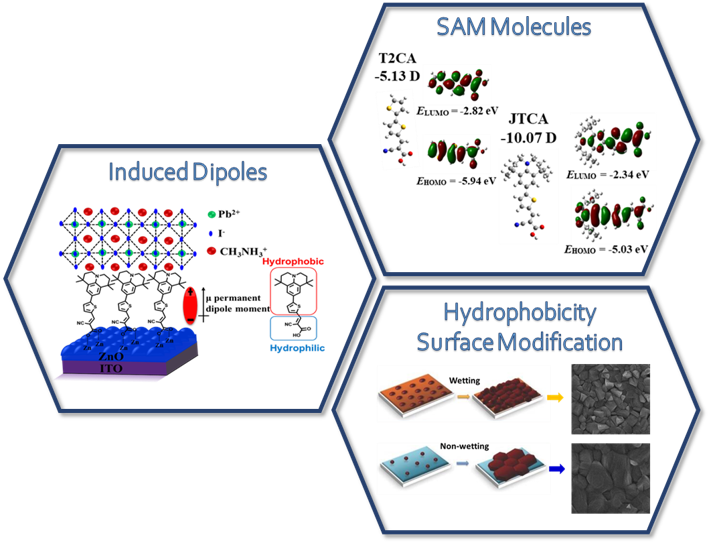
Interface modification is an effective strategy to improve the performance of perovskite solar cells. In RENEL, we utilize some new molecules with desired dipoles and wettability toward high efficiency and stable devices
In RENEL, we developed an high-efficiency solar cells with improved long-term stability and negligible hysteresis through the effective passivation of shallow and deep traps in organic-inorganic hybrid perovskite (OIHP) crystals and at the ETL/OIHP interface.
With these strategy, we recorded 22.3% power conversion efficiency for low temperature processable device.
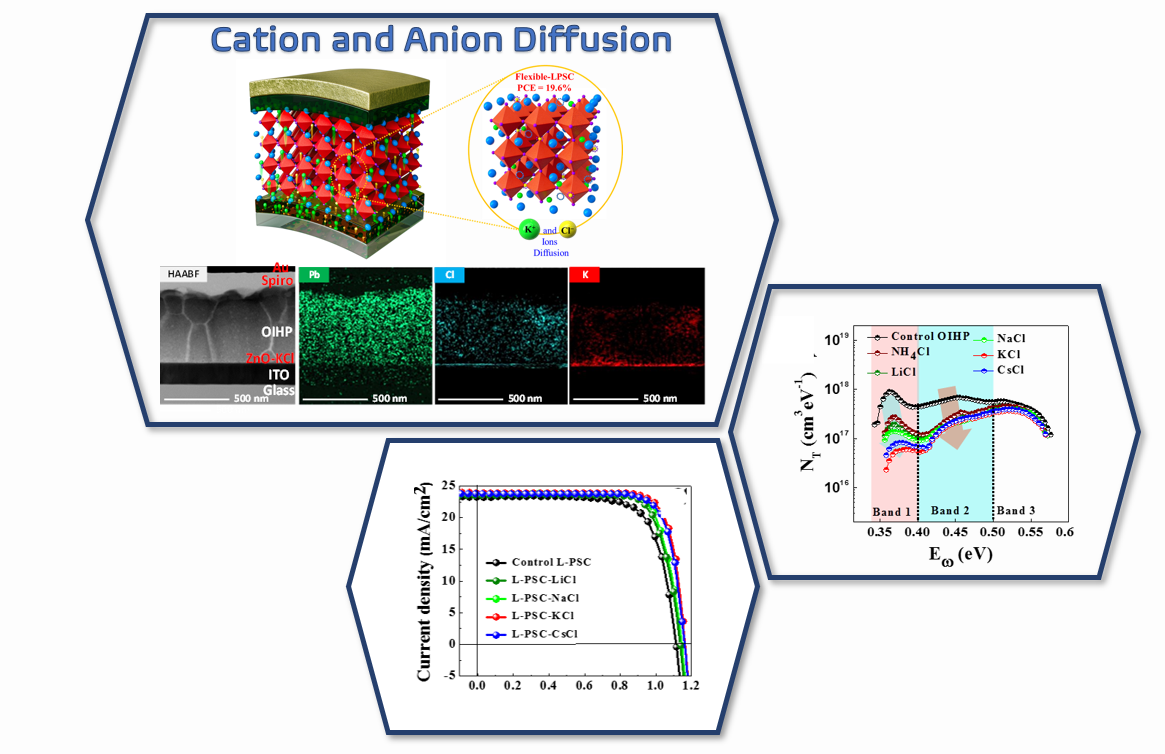
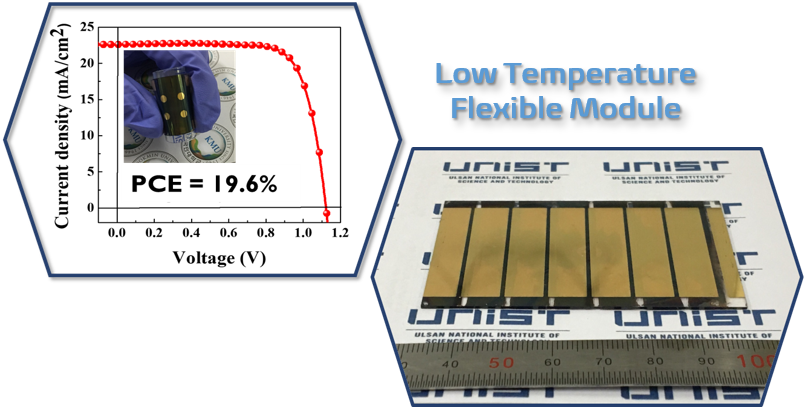
Combining fine-crystal availability, passivation technology, and transport materials quality, we also studied further to develop highly efficient solar device in both of rigid and flexible substrates, also in small and large area.
In RENEL, we recorded 19.6% power conversion efficiency in flexible substrate!
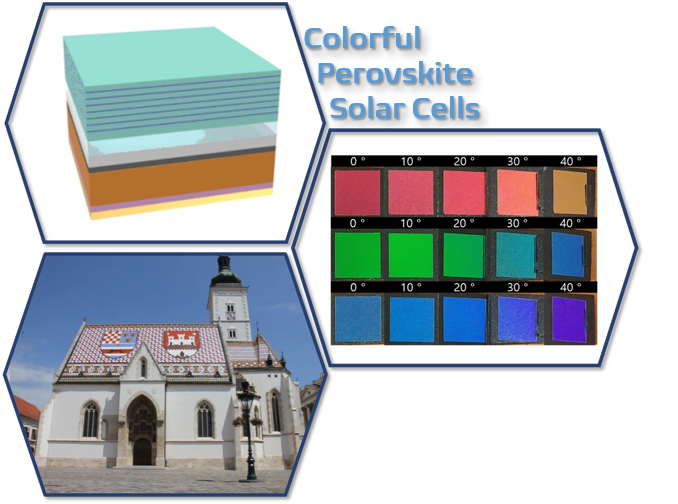
While research on building-integrated photovoltaics has mainly focused on power-generating window applications, the utilization of other underutilized surface areas in buildings, including exteriors, facades, and rooftops, has still not been fully explored. The most important requirements for BIPVs are color, power conversion efficiency (PCE), and long-term stability.
In RENEL, we achieved colorful (RGB) perovskite solar cells with smallPCE loss (<10%) and enhanced photostability
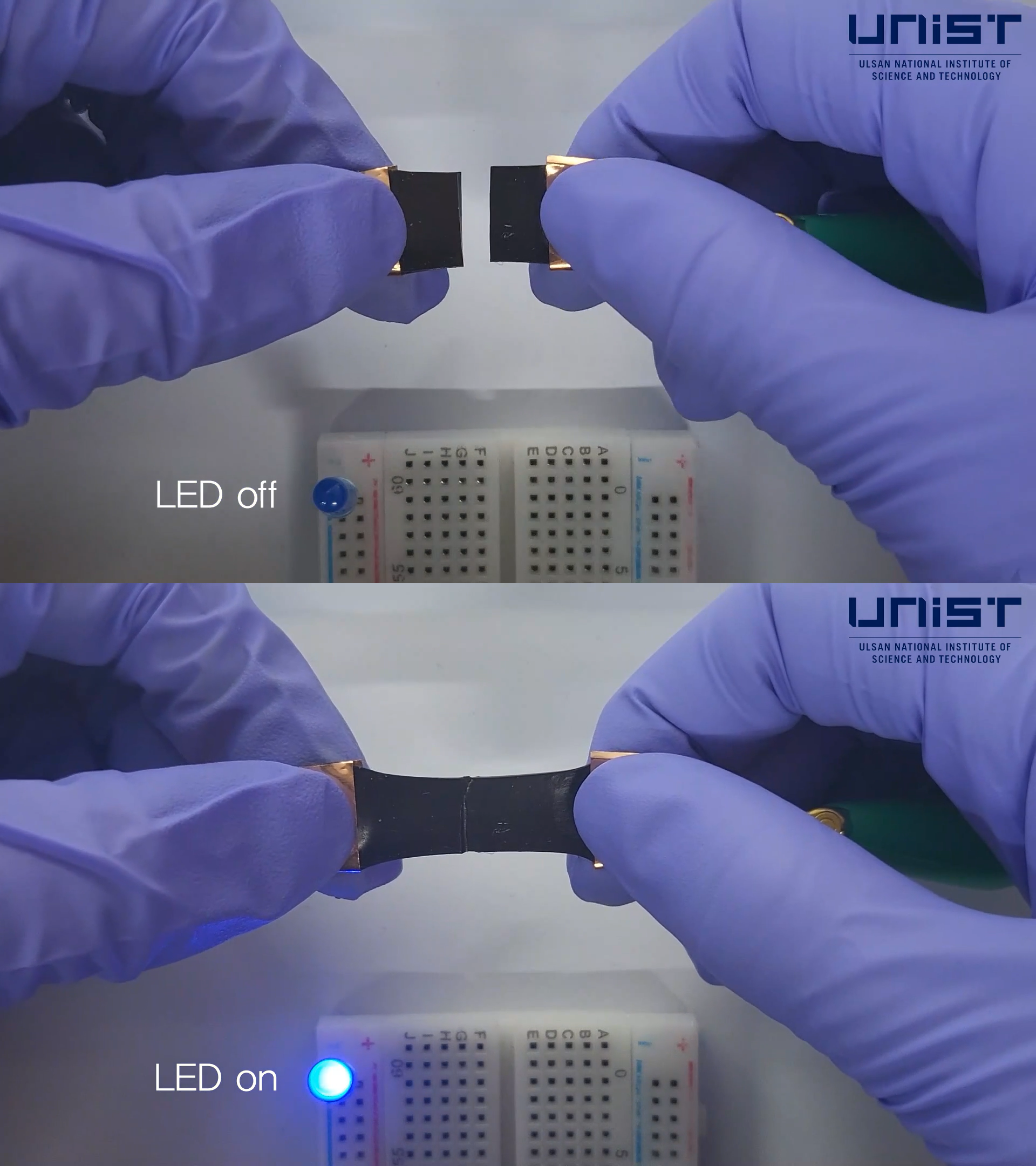
Development in wearable thermoelectric (TE) devices, which can achieve self-powering using waste body heat, has received significant attention. To develop high-performance wearable TE devices, the TE materials with desired mechanical properties (i.e., intrinsic flexibility, stretchability, and self-healability all at once) and sufficiently high TE properties are the prerequisites.